Mark Beaumont has cycled round the world very quickly and many other adventures. He’s a successful television presenter in Scotland, and a thoughtful voice on chasing adventures. I was delighted to chat to him for Grand Adventures.

Alastair: I’mm working on a hunch that if you put aside £20 a week, every week for a year, you’ll have £1000. And £1000, I believe, is enough money to go do a pretty cool adventure.
Mark: Sounds very cool. Yes, and you can do tons with £1000. It’s a great idea.
Alastair: Thanks! Looking back at your big first trip, cycling around the world, what’s your main overall memory of that journey now? So I don’t mean specifically your favourite place, but just when you look back on it, what do you think about?
Mark: My overriding memory of the around the world trip was excitement. It was exciting heading off into the unknown. It still tops the chart of all the trips I’mve done because it was that one where I was wide-eyed, and very innocent, and exploring the world for the first time. The great thing about a bike, which I always harp on about, is just how much you can see. You’re experiencing absolutely everything. Every subsequent trip I’mve done, I’mve got more experience and with experience comes a lot of good stuff, but it loses that excitement, that wide-eyed innocence that I experienced on the around the world cycle. I’md never pedalled outside Europe, so it was just wonderful, every mile that I went further away from home.
Alastair: There’s a law of diminishing returns to adventure, isn’t there?
Mark: Definitely. But that makes it sound a wee bit negative and not worth pursuing. So I would qualify it and say that your motivations change. When I first went out, it was very much a personal quest to figure out what I was capable of and to see the world. Whereas my motivation now is still as strong, but it’s different. I almost wish, at times, I could strip it back to those first days that I did expeditions. I equally enjoy the trips I now do, but they are very, very different.
Alastair: Perhaps a more positive slant on my answer would be this example: a while ago I spoke to a group of people who had never read “The Worst Journey in the World”. They had no idea about Captain Scott’s stories. I remember being jealous of them that they would get to discover all that for the first time. I suppose that’s similar to the wonderful nostalgia of your first big adventure.
Mark: Yes, there is nostalgia because a few days ago I found my logbooks for the planning year up to it. And I read of the mental state that I was in and my diary entries and, you know, it wasn’t all rosy-tinted and wonderful the way I like to remember it. It was bloody hard work and very demoralizing and I nearly gave up tons of times. But that’s not the way I remember it now.

Alastair: You say your motivation for adventure’s changed. What’s your motivation now?
Mark: Well, when I first put together the world cycle, I simply wanted to break a record and go on a massive adventure. I never grew up wanting to be on telly. I barely watched telly as a youngster. I was this farm boy who was homeschooled and just wasn’t interested in media or telly at all. But I met an inspiring guy, David Peat, a filmmaker, who gave me this amazing apprenticeship. Sadly he passed away a couple of years ago, but he instilled in me a great passion for capturing these moments. And I think you’ve got that as well with the short films that you do now. It’s one thing doing the adventure, it’s another thing capturing it and sharing it and telling a story. But I absolutely love that.
So going from Mr. I-want-to-give-return-on-investment to sponsors and just doing stuff on telly so that I could make it pay, I’mve changed to really, really loving the film-making and the storytelling. Ultimately nobody cares about my expeditions in terms of me actually doing the trips. I’mve got to bring them to life by being a storyteller. And I genuinely love that.
Alastair: Well, you can’t ask for any more than loving your job.
Mark: No, exactly.
Alastair: You’ve just done that amazing long journey around the Commonwealth. A lot of people, I imagine, look at you and think, “Wow, I’md love to do that. I’md love to get paid to go travel.” What’s the reality of it? Give me a couple of the pros and the cons of this rather then just having a proper job, saving up, and then going off on an adventure for the hell of it.
Mark: “A proper job…” you say!
Alastair: Ha! I’mm allowed to say that to you. People say it to me all the time, too!
Mark: The trip I’mve just done, the headlines are “Eight and a half months, 68 countries, 130 flights, 118,000 miles.” You know, you say that to people, and nine out of 10 say, “I would absolutely love to do that.” And you never grumble when you’re on the trip, but I’mll say in private to friends and family what the travel schedule is like, the flights, the jet-lag, and the hours you’re working, and just the team dynamics on a trip like that. And you’ll never, even from your wife or mother, get a moment’s sympathy because it is a dream trip. But I always do qualify, when people say that to me, I say, “when you watch these things on television, you love the idea of what I do. I’mm not sure you’d love the reality.”
And I don’t say that in a “poor me” way at all. I simply mean telly and blogs and social media are incredibly neat and concise, and tend to show the highlights. Even when the highlights are a low light, they’re still exciting. It always looks quite glossy. Whereas when you actually live a journey, and most of these journeys for me are over half a year, it’s a lifestyle. It’s not like an adventure race or something which you can focus on the finish, you know, you’re out there for a half a year plus. And I’mm not sure most people would enjoy that, living out of your bags – the reality of it.
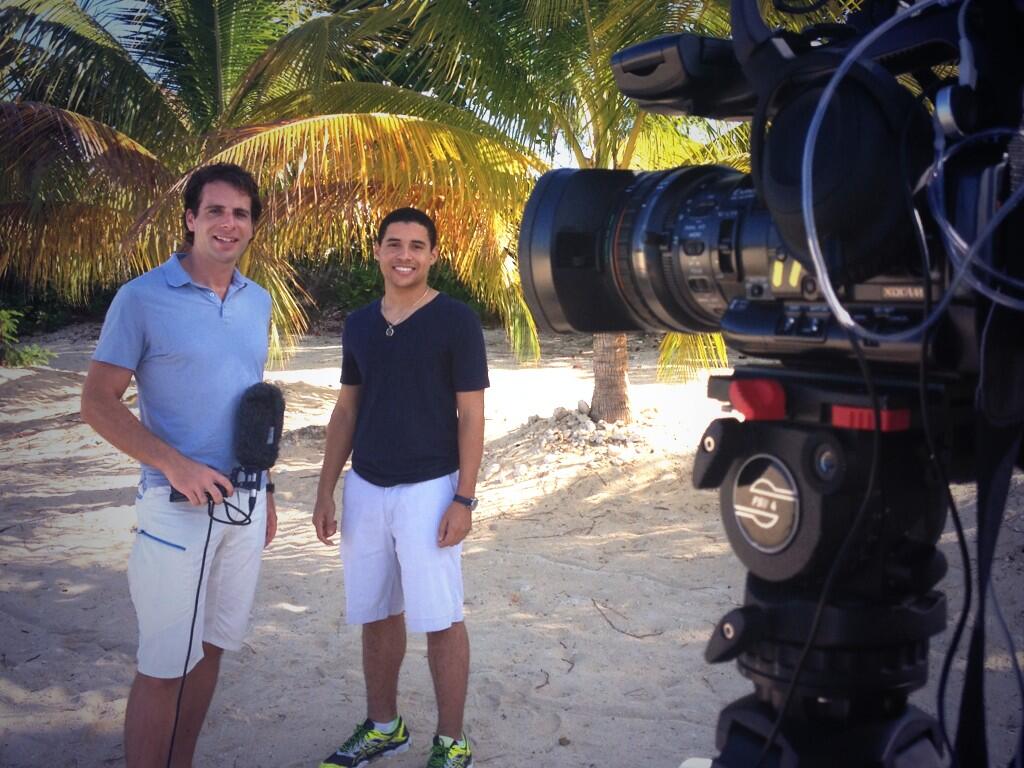
Alastair: If you weren’t doing this sort of stuff, if you hadn’t done your around the world, you’d have had a very different direction in life. What would that have been? You always strike me as being quite business-savvy.
Mark: I would’ve been an economist. I studied economics and politics at university. My plan was to work in finance. I didn’t like the thought of being an accountant and following that path. I’mve always thought of myself as wanting to plough my own furrow and be a bit entrepreneurial. I hoped I would do that in a business world, but I’mve never gone back. For five or six years out of university, I kept looking over my shoulder to see what my friends were doing and thinking, “Okay, at what point do I slot back into the rat race and the business world?” And the longer it’s gone on, the less I think about it and the more I think, “Okay, I’mm just going to do my thing,” because I enjoy it so much.
Alastair: I think the business side of your background must have been a big help with the practicalities of making your trip happen. One of the things that really stops people committing to these adventures is the worry about the money, the planning, the organising. So did you find that was quite a helpful aspect for you there? Adventure’s not just for hippies who just want to arse around, you’ve got to actually make some stuff happen.
Mark: Adventure is a massive umbrella and adventurers are anyone who goes off and experiences something new. But there’s very few people who try to make a career out of adventures. But even if you’re trying just to do one big trip, you need to learn a heck of a lot about how to fund-raise for it, tell the story, and do everything, as well as the sport of what you’re doing.
Most people go out and if they’re good at walking, they go on a long walk. If they’re good at cycling, they go on a long cycle. But it takes everything else to actually bring it to life, to get good people around you to be able to tell your story in the media and to fundraise for it. And, yeah, that does take a certain business savvy, but you learn a lot of it [along the way].
I mean the reality is I left university with a degree in economics and politics, but it doesn’t for a second tell you how to actually network with people, fund-raise, and try and get media coverage for what you’re doing. I think the biggest part is that it doesn’t matter what your background is, it’s just how well you can tell your story. And even if the story hasn’t happened yet, even if it’s a dream, how well can you package that and engage people? Because ultimately you can’t do these things alone.
Alastair: You must get asked this a million times, so what’s your stock answer when people say, “How do I get sponsorship for a big adventure?”
Mark: Yeah, I do hear that a lot. Going back to the world cycle, I spent half a year wasting my time, punching out emails which never got replies or were “nos”. The only way I’mve ever got any breaks when it comes to funding and backing is by directly networking. Now that’s not because I know rich people, I don’t.
The trick I have, which isn’t a trick at all, is if you ask people for money, well people don’t like giving money so they say no. And if they say no, that’s the end of the conversation. Whereas I tend to try and engage people with what I’mm doing, get them genuinely interested, and then ask them, “Who do you know? Who do you think you could introduce me to who could help make this happen, or would simply be interested to hear about it?” Because whilst people don’t like giving money, people are proud of their networks. And nine out of 10 people love the idea of being involved even if they can’t give me the money themselves.
So I never ask people directly for money, I always just engage them with the idea and then ask them who they can introduce me to because then they know that they can come back and support you themselves if they have the means. But, equally, if they introduce you to one or two other significant people then that’s you widened your web. I went from six months of not raising a penny and having hundreds of rejections to raising 25 grand in six weeks by changing my tack. I just stopped cold-calling people and companies. And I now know what it’s like because you’re the same as me, you get emails from people almost every day asking for help and to get involved in all this stuff and you just can’t. What it takes is somebody who’s personally introduced to you for you to actually sit up and give it particular attention. That’s the world we live in, just because there’s so much good stuff going on.

Alastair: I think that’s brilliant advice. I know that you do these trips – and certainly you did right at the start before there was any realities of life and earning money and stuff – just because you like a rip-roaring adventure. And yet the trips you’ve chosen to do, cycling around the world, riding down the Americas, rowing oceans, they require quite a bit of cash to do them. How do you balance in your mind trying to get the adventure that you want versus what could perhaps be seen as “selling out”, losing the purity of the trip by having to go for corporate sponsorship.
Mark: I often look back myself and ask, “Why am I doing this?” When you start out, it’s all about, “What do I want to do?” and then it’s ultimately up to you to make it happen. As time goes on and you build a profile and have some successes then you will have people come up to you and opening doors, creating opportunities. So whilst they are fantastic and they can take you down very new and different directions, you need to keep going back to yourself and saying, “Is this what I want to do? Why am I doing this?” And I would say on balance, over the last eight, nine years, my career has been 50%-ish stuff I have originated and the other 50% is stuff that people have brought to me. And there’s stuff I have turned down because even though it was well-paid and it was quite exciting, it just wasn’t me. It wasn’t what I wanted to do, the trips and adventures.
But equally it’s the hardest thing to pin down. Every single person taking on a journey, an adventure, will have their own personal motivations to do it. Some people want a one-off trip, some people want to create a career out of it. And, ultimately, if you want to have a career out of it then you do need to build a profile. And if you build a profile and become an effective storyteller for whatever you’re doing, people will criticize you for selling out because there’s some, call them “purists” or whatever they call themselves, but people who believe an adventure should simply be a personal pilgrimage. It should be something that is done for very – I guess – selfish reasons. But there’s no right and wrong adventure. Ultimately, unless you’re ruining somebody else’s tea party, which is not cool, it’s fair game. Go out there and push yourself and discover and share and inspire and do all those things. And there’s no great right or wrong about it.
So if you have the ability to monetize your adventures then there is no problem for me. It’s not a case of selling out. If you are leading a career which you enjoy and other people are getting enjoyment and inspiration out of and, if some people call that inspiration, so be it. But it’s also something which is individual to a person and also changes as time goes on.
When you’re young, free, and single, you can take on trips which you can’t when you’ve got a mortgage and family. My quest for adventure and the love for what I do is definitely changing. And I’mm glad for that. There’s stuff I’mve done in the past that I wouldn’t do now and I wouldn’t want to do now.
Alastair: I think that’s a very good summary of it all. I guess one of the things I’mm really trying to explain to people or help people with here are the hurdles that stop people going out on that first adventure. So if we look back to when you were doing your first trip, you were at university, good degree, potential for a good career. Was there a fear and a hurdle in terms of committing to the trip and worrying about dropping out of life and missing out on the career ladder?
Mark: Well, that’s tricky because when I set out after university I thought it would take a year. It ended up taking two and a half by the time I planned it and did it. There were massive insecurities within the planning stage because it took so long to get off the ground. When I say “so long”, it doesn’t seem that long looking back: six months to raise 25 grand seemed like no time at all, but during that time, all my friends were jumping into secure jobs and getting company cars and getting a monthly salary. And, yeah, of course you sort of compare yourself all the time when you’re young and think, “Where’s my break? Where’s my success going to come?”
But I honestly didn’t know that I could make a career out of this until long after the world cycle. It was after it was televised and I had the opportunity to write a book about it and the first few talks came in, I thought, “Well, actually you can monetise adventure.” I had absolutely no idea until then. When I finished the world cycle, I was thinking, “Right, I need to go back and find a job.” But your question is about taking the plunge and doing that first trip…
Alastair: Yeah…
Mark: I had some experience because I’md spent all my teenage years doing smaller trips. Age 12, I pedalled across Scotland, aged 15 I solo-ed Land’s End to John O’Groats. I knew what it was like to go out there and do the trip and also the planning stage of it. I don’t think most people wake up one day and just pedal around the world. You need to build confidence first. But so, so, so many people have big ideas. Getting to the start line to actually do it is where most people fail. Most people imagine going out and having a glorious failure on the expedition. And that fear of what might happen on the expedition stops most people from even starting them.
I always tell people – you probably get this as well on social media and emails, time and time again with tons and tons of questions – Just get out there. They need to do exactly what you preach, Al. Do a microadventure, do something small because most of those questions and most of those what-ifs and most of those doubts will simply evaporate. It’s not like you need to become a grand expert and suddenly become brilliant at it. I’mm not even a grand expert at cycle touring. I know what I know and I bumble along. I struggle to put a bike together, that’s for sure. I just hope it doesn’t break. People assume once you’ve broken world records and done great trips you’re some sort of Jedi master at expeditions. It couldn’t be further from the truth. You’ve just got to get out there and give it a try.
It’s about going from being an armchair adventurer watching this stuff and saying, “Oh, I’md love to do that,” to the difference of the experience of pushing yourself physically and mentally. Most people just don’t start.

Alastair: I’mm very glad to hear you say that because I send out an “Adventure 1000” newsletter to 1800 people a week. A few weeks ago I asked for feedback, “How could this be better?” Loads of people wrote back saying, “Yeah, it’s good, but what we need is practical advice, practical advice, equipment, how to book flights, visas.” Yet that stuff to me seems irrelevant, like a minor detail, really, compared to the crux of what really makes a trip happen.
Mark: Somebody emailed me this morning and said, “I’mve got this epic trip planned to cycle through Europe but I just don’t know where to camp and how to do it.” I’mm like, “Honestly? Europe?” That’s something I would be thinking about as I got a ferry across the Channel. And maybe as I pedalled through my first day in Northern France, “Where am I going to sleep tonight?” You know, you’re never going to do anything, you’re never going to step out your front door if you worry about those things. Now, maybe I’mm a bit too lackadaisical, but I think do the big picture, do the planning, make sure it’s safe, but then just get out there and figure out the rest as you go.
Alastair: I think the more experienced you are, the more lackadaisical you are able to become. The way I feel about my own big trip is that I spent a lot of time planning and preparing but the only use for that planning was really just to give me the guts to get out of my front door on Day 1. Once I actually got out my front door, I realised that all I needed was a bike, a tent, and then just pedal south.
Mark: Yeah.
Alastair: But I needed to plan enough to give me the balls to get out the door and discover that for myself.
Mark: Yeah. Yeah. It’s painfully simple. I don’t know what stops people. The unknown?
Alastair: Yeah, the unknown, I think so. That’s also the appeal, isn’t it?
Mark: But also people worry about stupid stuff like loneliness and boredom. People compare the journey to their everyday lives, which are very busy and tech-infused and distracted, and think, “How am I going to cope with the simplicity of expedition life?” What you don’t realise until you’ve experienced it, is that it’s a completely different mindset. The things which seemed important aren’t important.
I think it’s something which is impossible to describe until you’ve been on an expedition, especially a solo one. A lot of those what-ifs – “How will I cope? Am I the right sort of person?” – You just need to go out there and realise that it’s a different space entirely.
Alastair: And I think, adding to that, an important thing to remember, certainly for a bike journey, is that once you commit to it and set off, if you hate it, you can just come home. It’s not the end of the world.
Mark: Yeah, yeah. I would always caution somebody if their first grand adventure is going to be rowing the Atlantic because you are fully committed and that is a shit place to be if you don’t like adventure.
Alastair: Yeah, that’s true. My final two brief questions, one I’mve been asking all cyclists is, how far could you cycle for £1000?
Mark: Hmm. A very, very long way. For a grand? You could easily get across a continent, if not further. A thousand pounds? If you were literally just living off cheap food you could probably get halfway around the world.
Alastair: My final question to you then, if I gave you £1000, what adventure would you go and do?
Mark: That’s a toughie. I’md have to take my family on an adventure. Okay, here’s one that is so easy for people to do because it’s close to home. It’s not the cheapest country in the world, but I’md go back and explore in more detail the west coast of Norway. So Trondheim up to Bodø, the Lofoten isles and to Narvik. All the way you’re ferry-hopping. During the summer months it’s one of the best places I’mve ever been to. If I could go back and share with my daughter and my wife that part of the world, that would be £1000 very, very well spent.
Alastair: Fantastic. Thank you, Mark.
My new book, Grand Adventures, is out now.
It’s designed to help you dream big, plan quick, then go explore.
The book contains interviews and expertise from around 100 adventurers, plus masses of great photos to get you excited.I would be extremely grateful if you bought a copy here today!
I would also be really thankful if you could share this link on social media with all your friends – http://goo.gl/rIyPHA. It honestly would help me far more than you realise.
Thank you so much!
Grand Adventures from Alastair Humphreys on Vimeo.
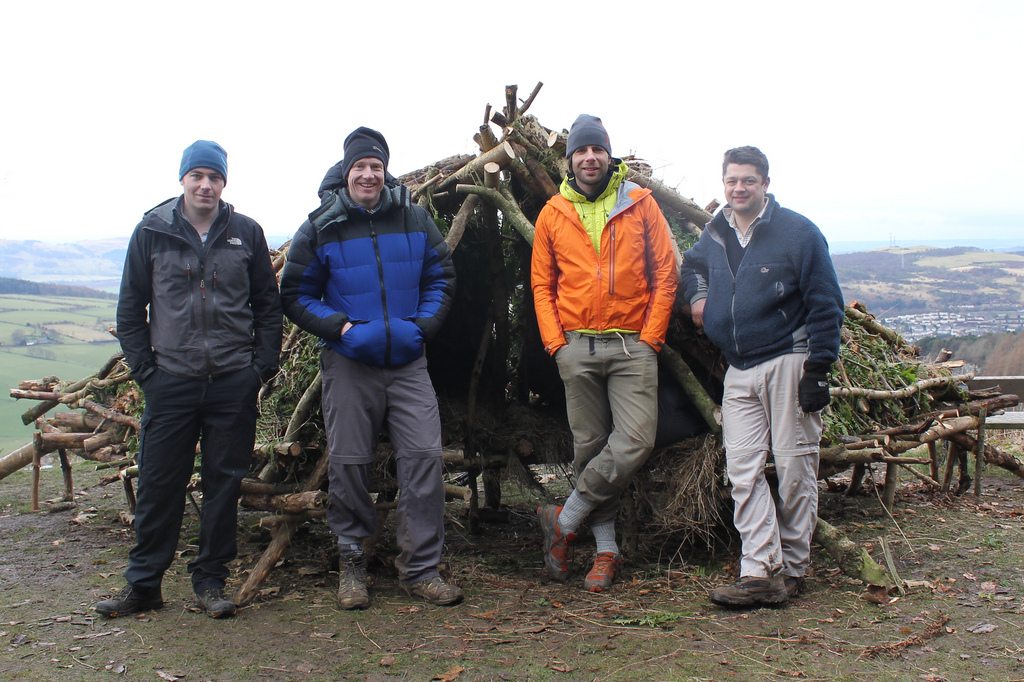
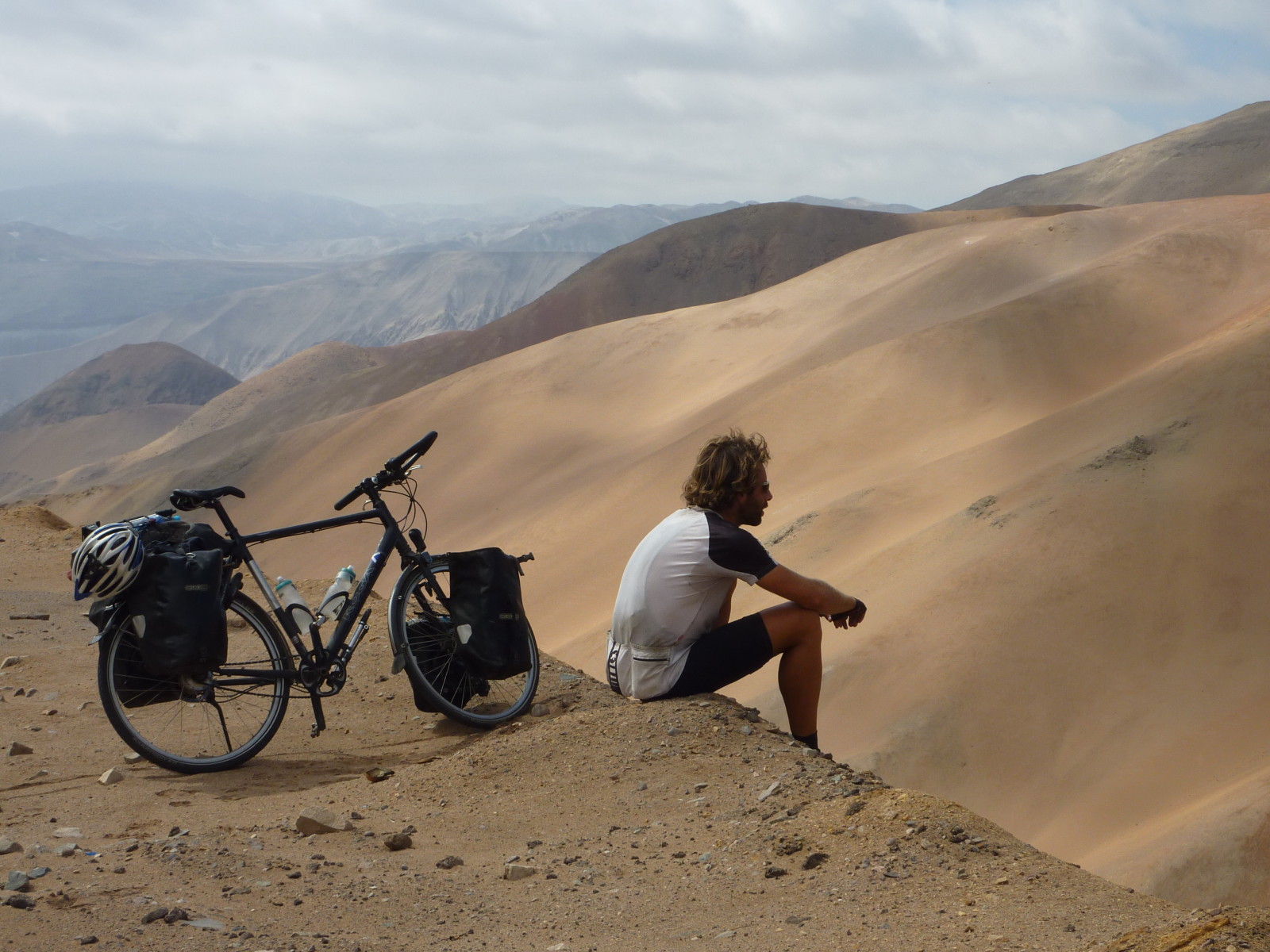
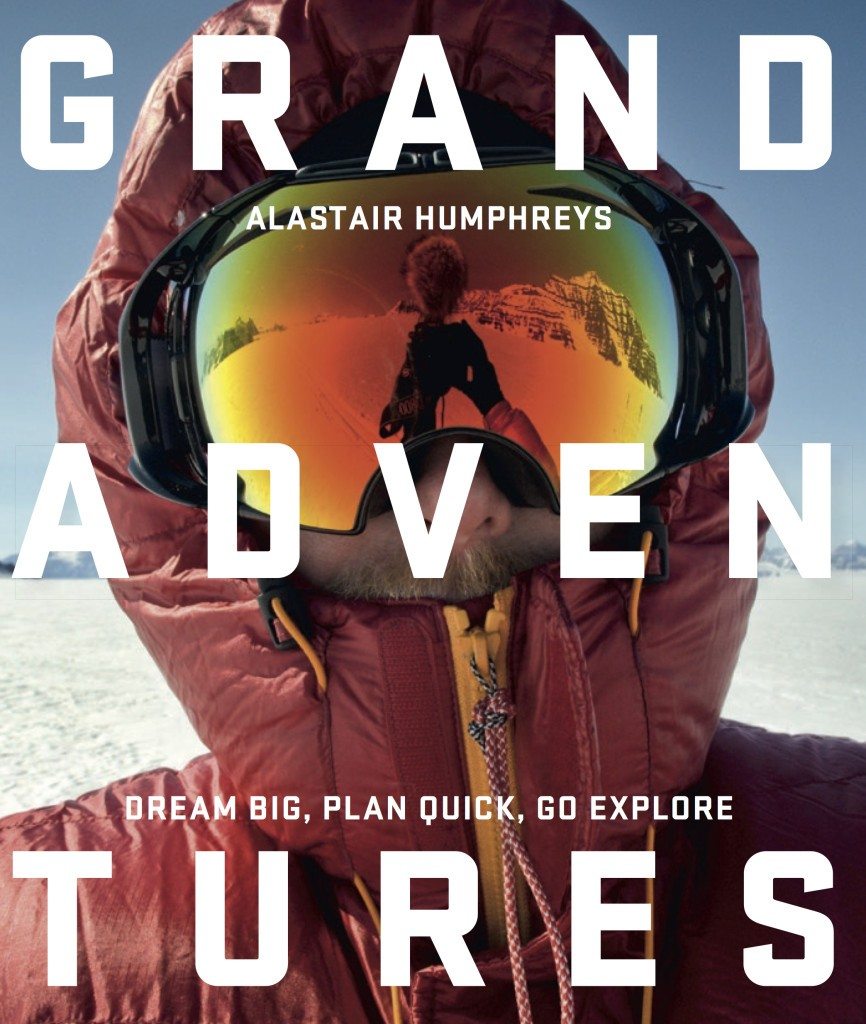

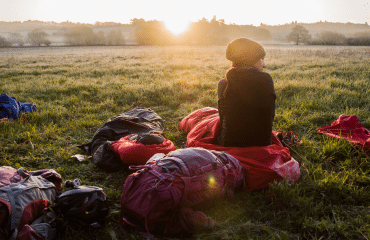
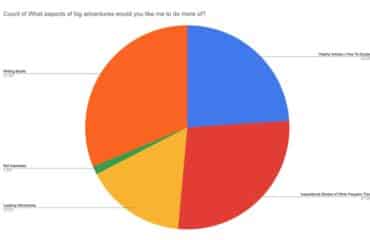
Comments